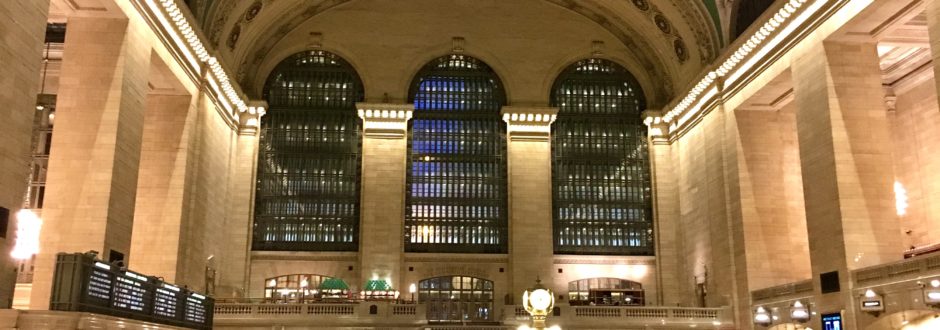Renowned psychologist Abraham Maslow (1908-1970) once wrote in Religions, Values, and Peak-Experiences, “The great lesson…is that the sacred is in the ordinary, that it is to be found in one’s daily life, in one’s neighbors, friends, and family, in one’s back yard.”
In a world swirling with chaos, confusion and despair, it can be difficult to focus on – let alone find – the light and the goodness that still exist. But, as we’re reminded in the Gospel of John 1:5, even when all hope seems to be lost, the light of God still shines: “The light shines in the darkness, and the darkness has not overcome it.”
Indeed, we can find it shining in the smallest of ways – if only we look for and pay attention to it. For, as the quote above from Abraham Maslow suggests, it’s often the small, seemingly inconsequential things as we go about our daily lives that point us to the sacred.
Below is a story that so beautifully speaks to this, entitled “The Man in the Metro”*:
“It was all videotaped by a hidden camera. He was a young white man in jeans, t-shirt and a Washington Nationals baseball cap. He positioned himself by a trash basket at a metro station in Washington, D.C. and started to play the violin for passing pedestrians. He played six Bach pieces during the rush hour as thousands of people filed through the station, most of them on their way to work.
After the first four minutes went by, a man briefly leaned against the wall to listen but then looked at his watch and started to walk again, clearly late for work. A little later the violinist received a dollar trip from a woman who tossed the money in his open violin case, but without stopping. Others flipped in quarters, nickels or pennies on the run.
The ones who paid the most attention were the children. The Washington Post reported, ‘Every single time a child walked past, he or she tried to stop and watch. And every single time, a parent scooted the kid away.’
In the 45 minutes the musician played, only six people stopped and stayed for a while. Others who were on their cell phones spoke louder as they passed the violinist, so their voices could be heard over the music.
When he finished playing and silence took over, no one noticed and no one applauded. No one knew that the violinist was actually Joshua Bell, the internationally acclaimed virtuoso. That day in the metro he played one of the greatest pieces of music ever written – Bach’s Partita No. 2 – on a Stradivarius worth $3.5 million. Just two days before, he had sold out a theater in Boston where the tickets averaged $100.
Life’s music is everywhere and all around us. If we do not have a moment to stop and listen to one of the best musicians in the world playing some of the best music ever written, how many other things are we missing?”
Here’s to listening for the music – in times of hope, and in times of darkness.
*I should note that this interpretation of the story is controversial. It is an anonymous summary that went viral after The Washington Post shared this story from 2007. However, I believe its message is a powerful reminder of a life truth: that beauty, light and blessings exist all around us.


Wonderful story !!
It’s like another saying “Stop and smell the flowers”.
Such beautiful music, but people are tied up into that rush rush rush style. Love the Web-Site.
Keep it going.
Thank you, Bob! Yes, we have grown accustomed to living a rather hurried pace of existence…